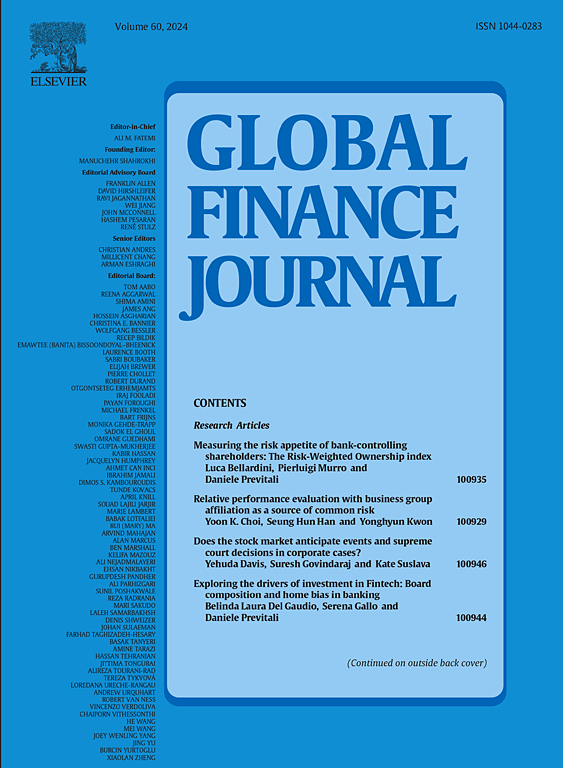Navigating ESG rating divergence: Implications for labor investment efficiency and firm adaptation strategy
IF 5.5
2区 经济学
Q1 BUSINESS, FINANCE
引用次数: 0
Abstract
In today's business environment, information asymmetry significantly impedes improvements in corporate labor investment efficiency (LIE), whereas high-quality environmental, social, and governance (ESG) disclosures are widely regarded as an effective means to reduce this issue. However, the rapid expansion of ESG rating agencies has led to considerable discrepancies in ESG evaluations, with the same firm often receiving divergent scores, even on identical indicators, from different agencies. The consequences of such inconsistencies remain underexplored. This study examines the effects of ESG rating divergence (ESGRD) on LIE, as well as the adaptive strategies firms adopt in response. We employ a double machine learning model using ESG ratings from six leading agencies, combined with panel data from Chinese A-share listed companies spanning 2003 to 2021. Our findings indicate that ESGRD has a significant short-term positive effect on LIE. In response, firms tend to increase their debt levels as a short-term coping strategy rather than reduce their workforce. Specifically, for every 1 % increase in ESGRD, firms in the 75–100th percentile range increase their liabilities by approximately 76,800 yuan, whereas those in the 50–75th percentile range increase liabilities by about 31,100 yuan. Moreover, the impact of ESGRD on LIE exhibits substantial heterogeneity across firms with different characteristics.
引导ESG评级差异:对劳动投资效率和企业适应策略的影响
在当今的商业环境中,信息不对称严重阻碍了企业劳动投资效率(LIE)的提高,而高质量的环境、社会和治理(ESG)披露被广泛认为是减少这一问题的有效手段。然而,ESG评级机构的迅速扩张导致ESG评估存在相当大的差异,同一家公司往往从不同的机构获得不同的分数,即使是在相同的指标上。这种不一致的后果仍未得到充分探讨。本研究考察了ESG评级差异(ESGRD)对企业绩效的影响,以及企业采取的适应策略。我们采用了双重机器学习模型,使用了六家领先机构的ESG评级,并结合了2003年至2021年中国a股上市公司的面板数据。我们的研究结果表明,ESGRD对LIE具有显着的短期积极作用。作为回应,企业倾向于增加债务水平,作为一种短期应对策略,而不是减少劳动力。具体来说,ESGRD每增加1%,处于75 - 100百分位范围内的企业的负债增加约7.68万元,而处于50 - 75百分位范围内的企业的负债增加约3.11万元。此外,ESGRD对企业绩效的影响在具有不同特征的企业中表现出显著的异质性。
本文章由计算机程序翻译,如有差异,请以英文原文为准。
求助全文
约1分钟内获得全文
求助全文
来源期刊

Global Finance Journal
BUSINESS, FINANCE-
CiteScore
7.30
自引率
13.50%
发文量
106
审稿时长
53 days
期刊介绍:
Global Finance Journal provides a forum for the exchange of ideas and techniques among academicians and practitioners and, thereby, advances applied research in global financial management. Global Finance Journal publishes original, creative, scholarly research that integrates theory and practice and addresses a readership in both business and academia. Articles reflecting pragmatic research are sought in areas such as financial management, investment, banking and financial services, accounting, and taxation. Global Finance Journal welcomes contributions from scholars in both the business and academic community and encourages collaborative research from this broad base worldwide.
 求助内容:
求助内容: 应助结果提醒方式:
应助结果提醒方式:


